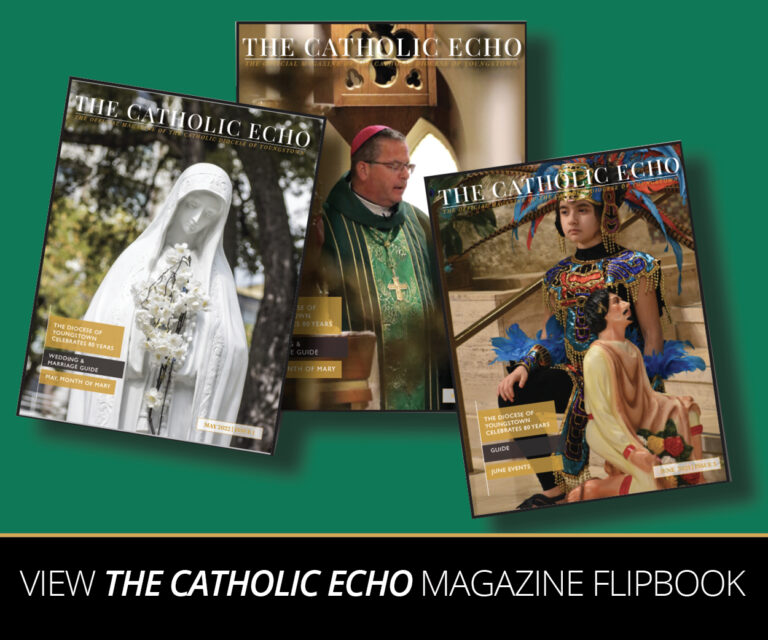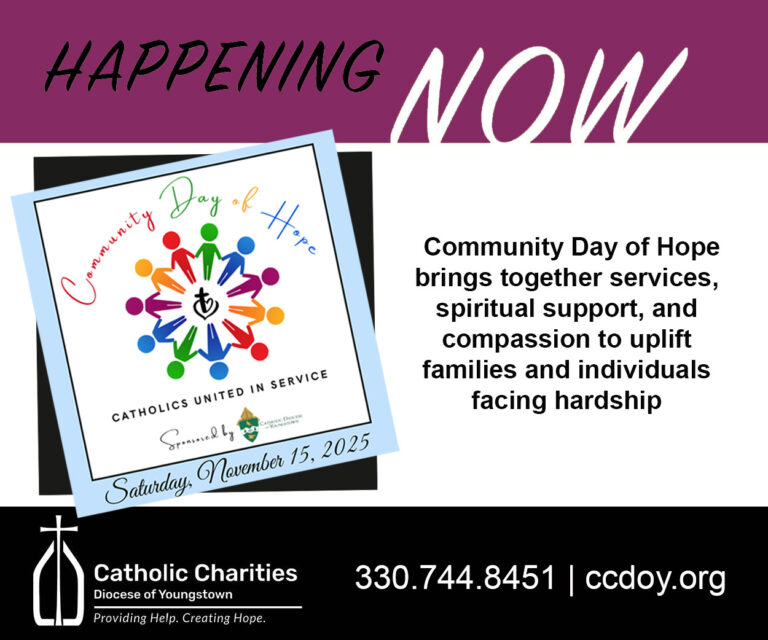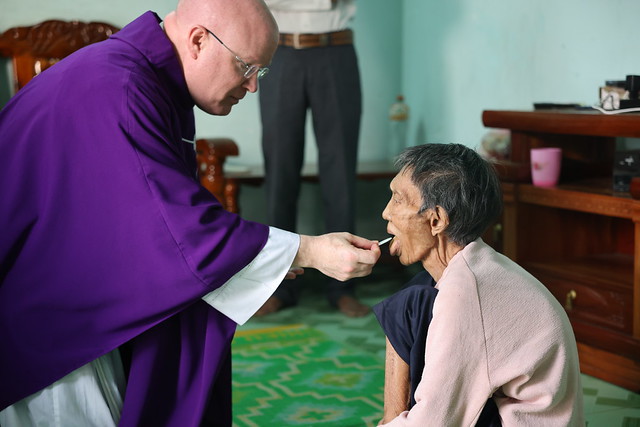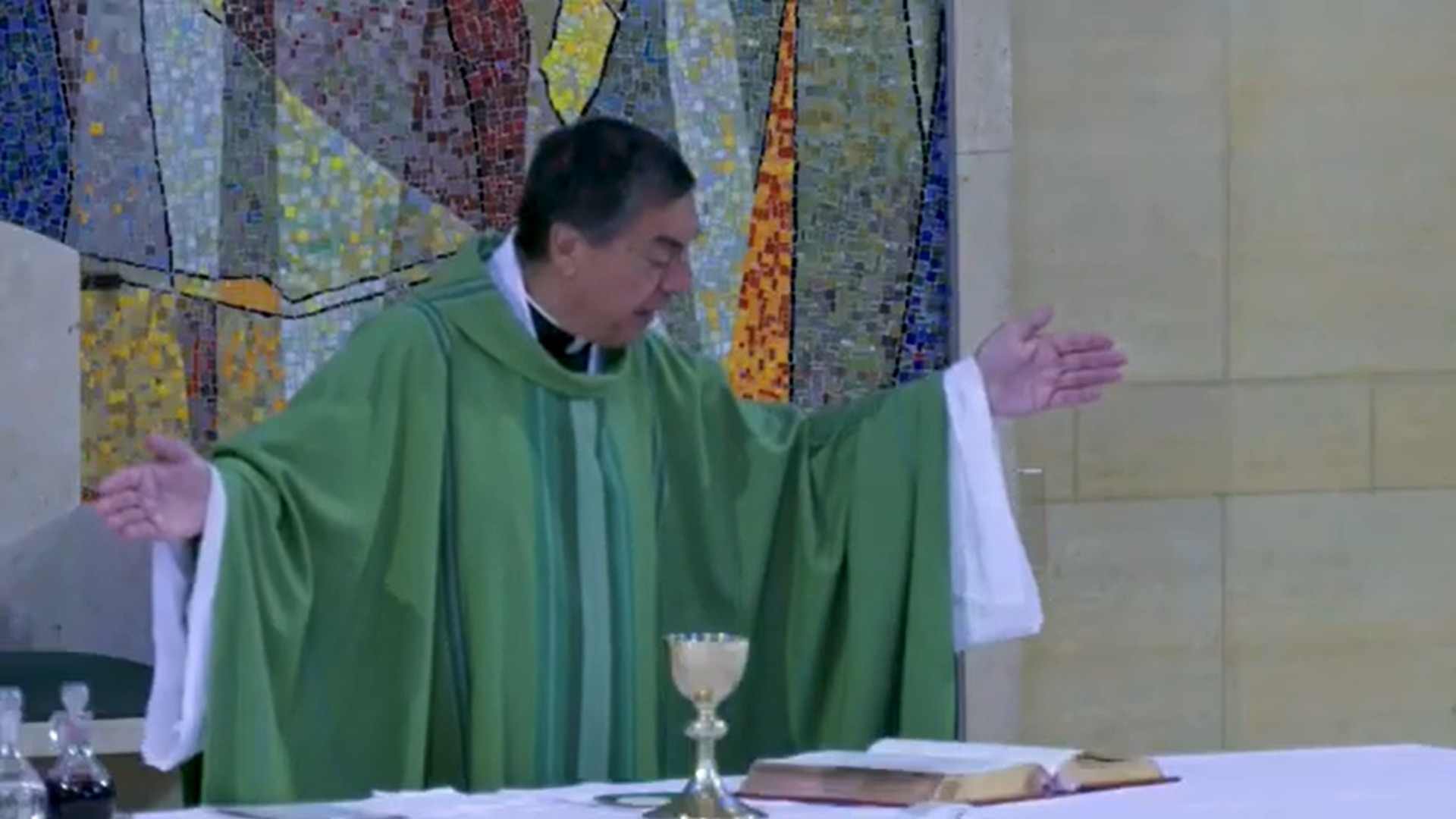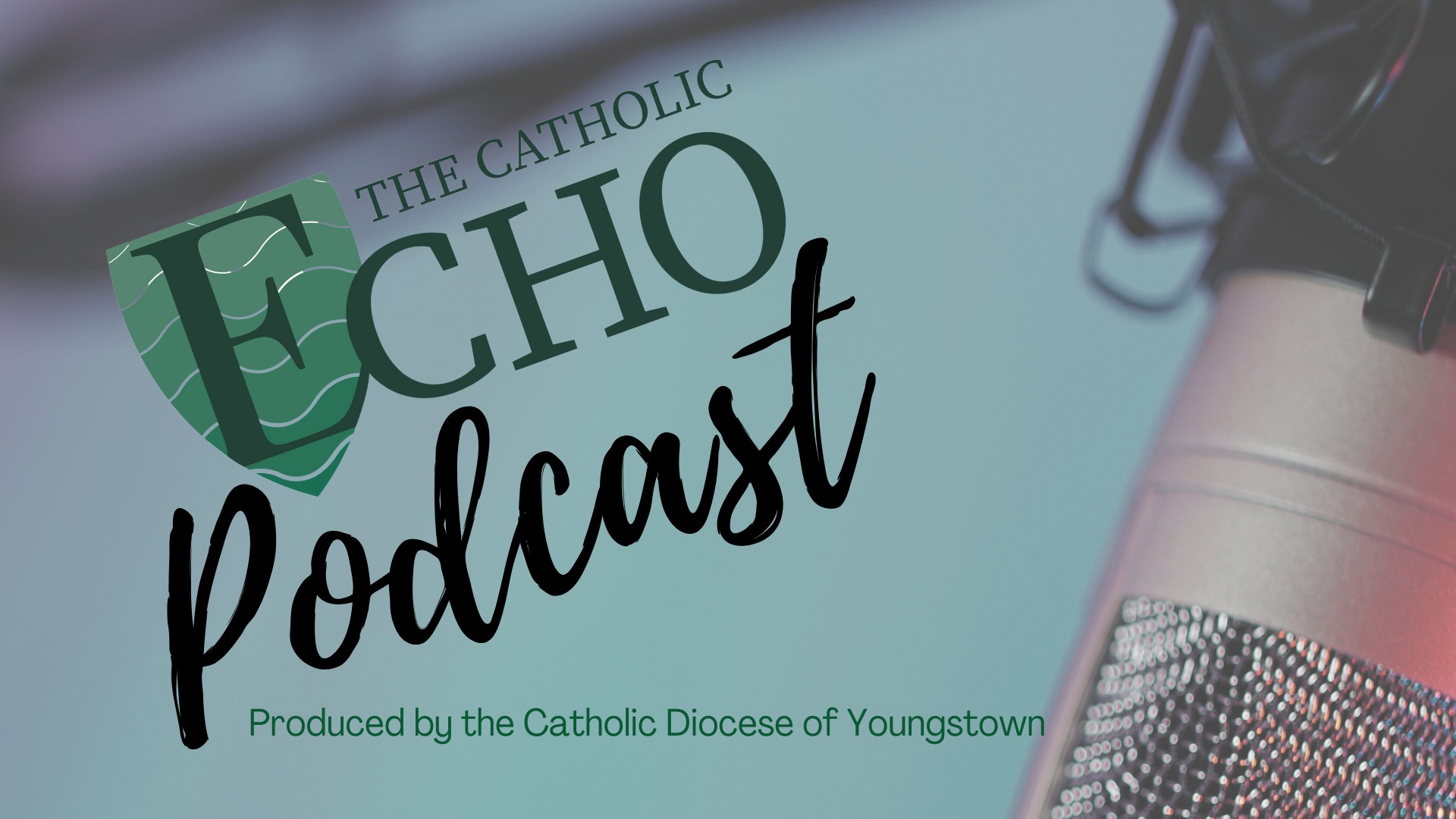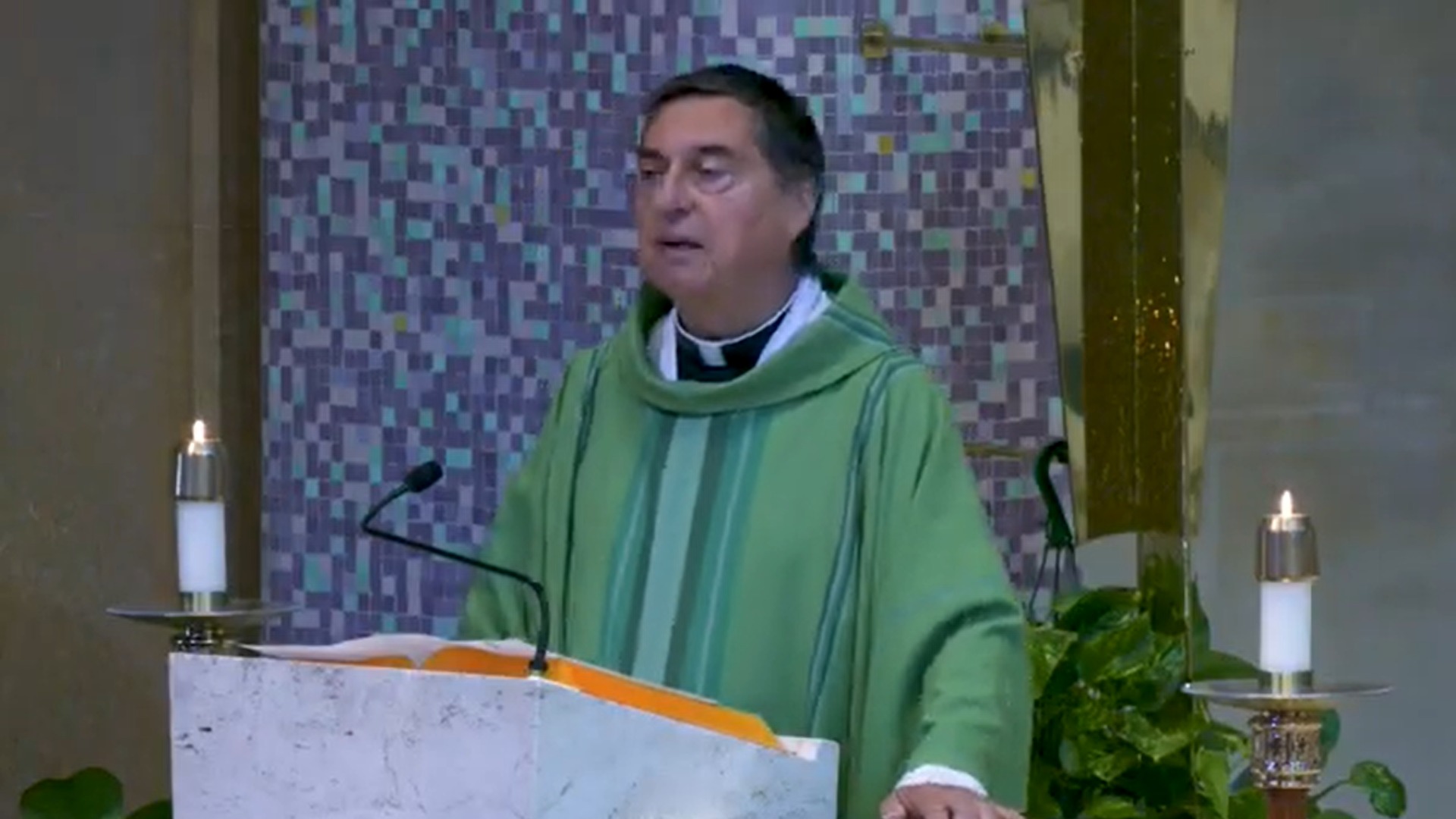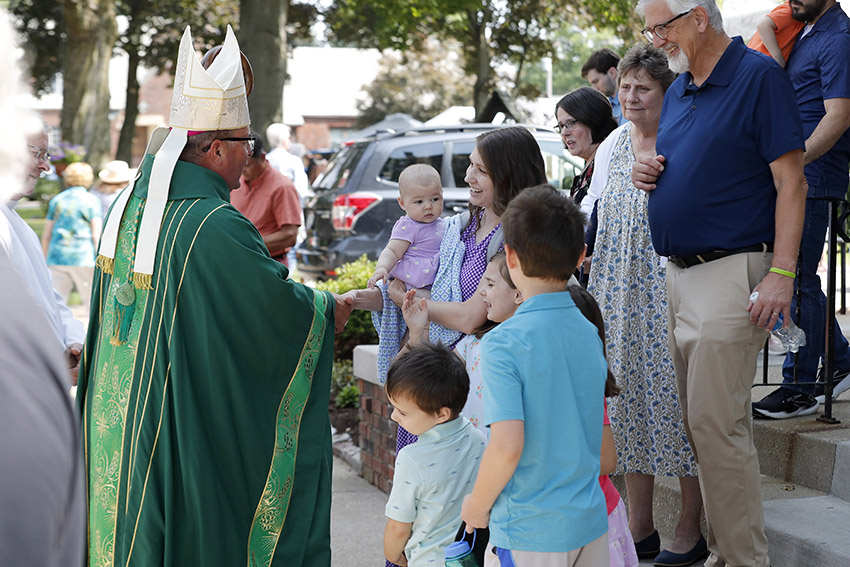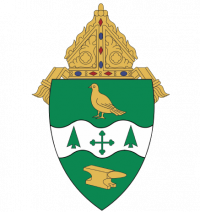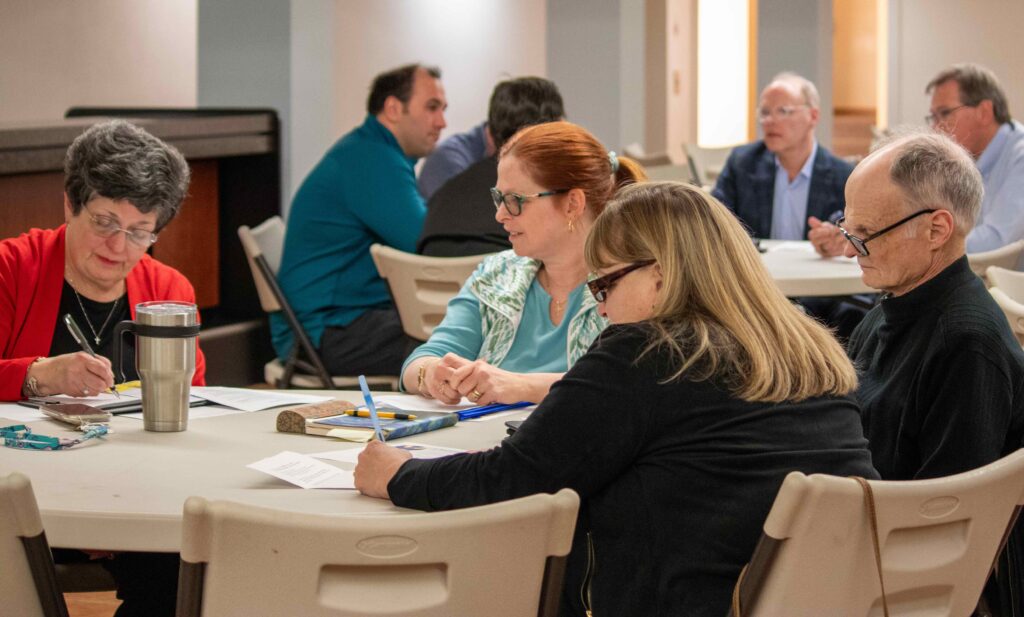
Welcoming new parishioners with open arms, keeping communication open among Church communities and clergy, and providing opportunities for parishioners to join each other in faith outside of Mass are three of many goals discussed during the Synod on Synodality listening session on March 25, dedicated to Catholics in Trumbull and Ashtabula county parishes.
Diocesan Vicar General Monsignor Zuraw (pastor at St. Charles Parish in Boardman) welcomed a group of more than 15 parish representatives to St. Rose Church in Girard to address two important questions:
- Where have I seen or experienced successes—and distresses—within the Church’s structure/organization/leadership/life that encourages or hinders the mission?
- How can the structures and organization of the Church help all the baptized respond to the call to proclaim the Gospel and to live as a community of love and mercy in Christ?
The Synod began with the prayer We Stand Before Holy Spirit, which is traditionally prayed during councils and synods. Parish representatives were then put into small groups of four to six. After 30 minutes, they began voicing their responses to question one.
“This is a success—the fact that you’re asking for input from the parishioner level,” mentioned Michele Warholic, from St. Robert Bellarmine Parish in Cortland.
This comment coincides with Pope Francis’ desire to further engage all Catholics regarding the decisions made in parishes, which is why he initiated the Synod on Synodality. This synod focuses on the theme of synodality, which is the process of journeying together, discerning and listening to the Holy Spirit as a community within the Church. It aims to involve all members of the Church in decision-making processes and to foster a culture of dialogue and collaboration at all levels of the Church hierarchy.
Other parish representatives also recognized continual communication among clergy and parishioners as a success, including Rich Archer of Blessed Sacrament Parish in Warren. “It is definitely a plus to have the deacons involved in the parish, and also nuns—they have been a blessing to us,” he said. “They are an extension of the priest, and they partner with our ministries. They are essential.”
While parishioners noted positive points about communication and engagement in their parishes, they also recognized that there remains room to grow and help others live out the Gospel and their Catholic faith.
Parishioner Matthew McNany of St. Patrick Parish in Hubbard mentioned the importance of ensuring that the Catechism is accessible and understandable. “There is a lack of true understanding of what the Church teaches,” he said. “If you truly understand what is happening at the Mass, you should be absolutely amazed and want to go there every day.”
Warholic stated that, at times, this lack of understanding can turn parishioners away from the Church. “Sometimes, clergy communicate directives that end up alienating people. They are not inclusive enough to get input from parishioners,” she said.
Others, including Lori Gilhousen of Our Lady Of Hope Parish in Andover and Kinsman, conveyed that the communication about changes within parishes often happens too quickly for elder parishioners to grasp. “The changes are happening too fast for people to process, and this typically happens with older members of our community,” she said.
In addition to more accessible and approachable information regarding the teachings of the Church, parishioners also stated that clergy should use open communication to diffuse rumors that begin in their parishes.
“Rumors start about parishes closing and combining, and if the Church is not giving out information, the rumor is the only information out there. It’s okay if the answer is ‘we don’t have an answer,’” said McNany.
Denise Deltondo, a member of St. Rose Parish in Girard, agreed. “Even if parishioners don’t like what they hear, clergy should still disseminate information.”
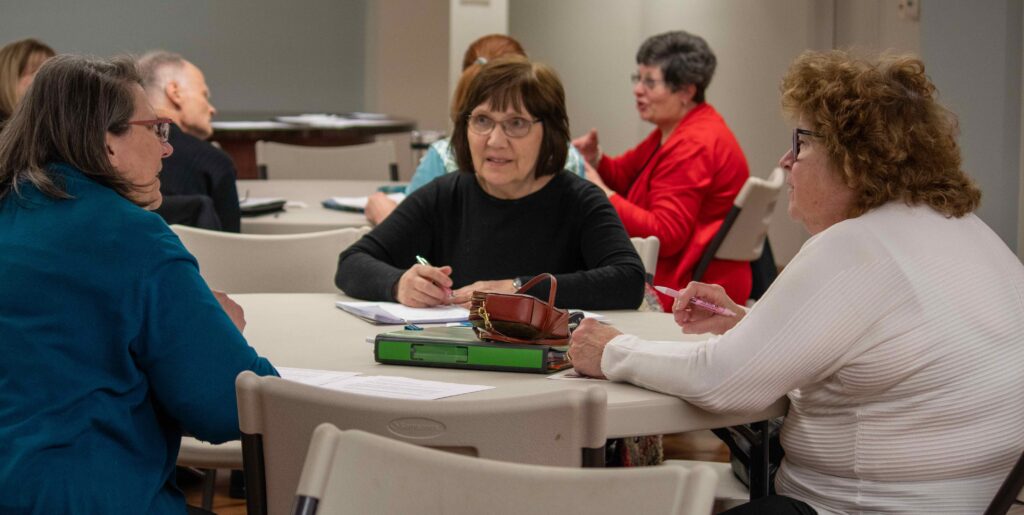
After approximately 20 minutes, parishioners answered the second question: How can the structures and organization of the Church help all the baptized respond to the call to proclaim the Gospel and to live as a community of love and mercy in Christ?
Nearly all small groups cited the need to make young people and new parishioners feel part of the Church through welcoming them, inviting them to be part of the Mass, and providing opportunities for engagement outside of Mass.
“We need to recognize people coming in and do anything we can do to help people feel welcome. If there are new parishioners, teach them how to bring up the gifts so that they feel like they’re part of the mass,” said Archer.
Warholic concurred, and she mentioned the need to develop strong Catholic communities beyond the Mass. “I think there is a need for activities where people gather, have discussions and share meals together, because families are not providing that support anymore,” she said.
While parish representatives understand the importance of growing communities and wholly welcoming new members into the Church, they also recognize that drawing new members into the Church is not an easy feat in 2024. They believe that new ways of dispersing homilies and Church teachings is key to engaging the next generation of parishioners.
“Use the homilies to teach the Gospel so people continually feel like they’re learning about the faith,” Warholic said. “When people say ‘young people aren’t coming to church,’ that is not true if we look at churches that engage young people consistently.”
McNany continued Warholic’s point, and referenced that the term “tradition” may hinder young parishioners from fully engaging with the Church. “Young people don’t want to hear the word ‘tradition,’ and I am not Catholic because of ‘tradition.’ I am Catholic because of what I get from the Mass. It’s not just tradition—it’s what’s actually happening. We want kids to be excited to go up for communion,” he said.
The evening’s synod listening session wrapped up with parishioners agreeing that most importantly, members of the Catholic Church should act as pillars in the community. “We, as Catholics, need to be strong role models and not expect a pat on the back for all that’s accomplished, but to share our knowledge and our faith. Our praise will come from God,” said Susan Lyons of St. Thomas The Apostle Parish in Vienna at the close of the synod.
Monsignor Zuraw stated that the evening’s responses will be transcribed and summarized as part of a five-page paper that will be completed by April 8, 2024.
The Synod on Synodality was announced by Pope Francis in 2018 and officially began in October 2021. It is expected to culminate with a synod assembly in Rome. The synod explores various themes related to synodality, such as listening, discernment, communion and Mission. These themes guide the discussions and reflections among clergy and Church communities.
The ultimate goal of the Synod on Synodality is to generate insights and proposals that can inform the future direction and governance of the Catholic Church. It is expected to result in new Church initiatives and recommendations for the future of the Church’s leadership.
Pope Francis invites all church communities to participate in the Synod. He urges participants to listen deeply to each other and to the Holy Spirit, to be open to change and conversion, and to approach the Synod with humility and a willingness to be surprised by God.

